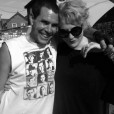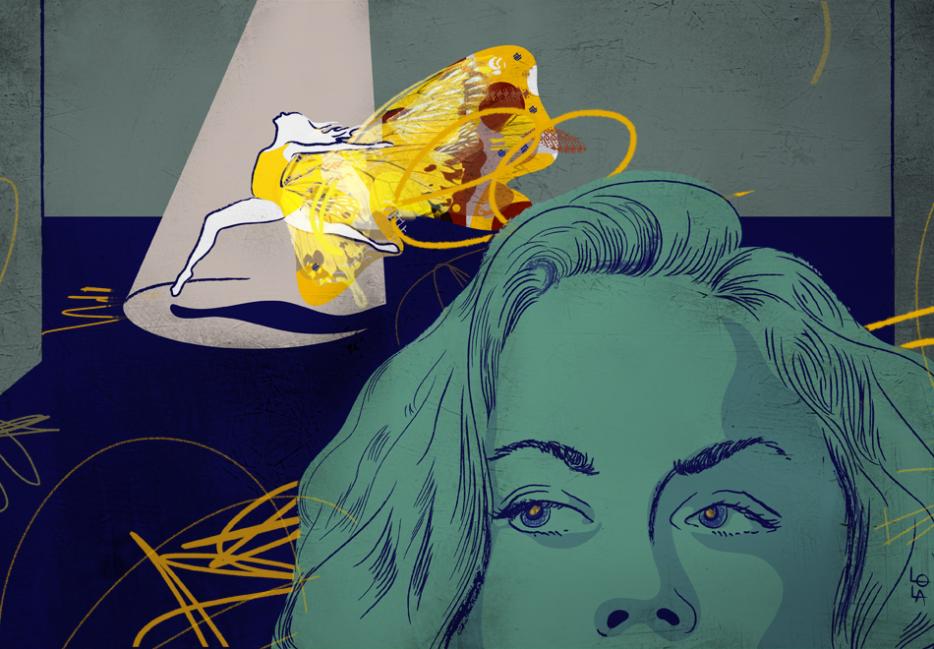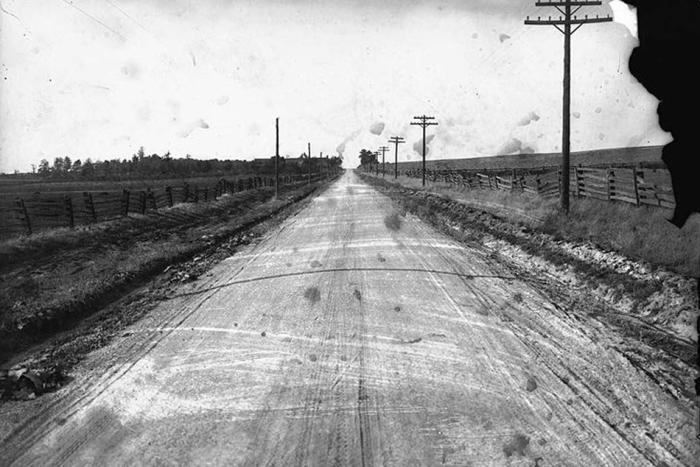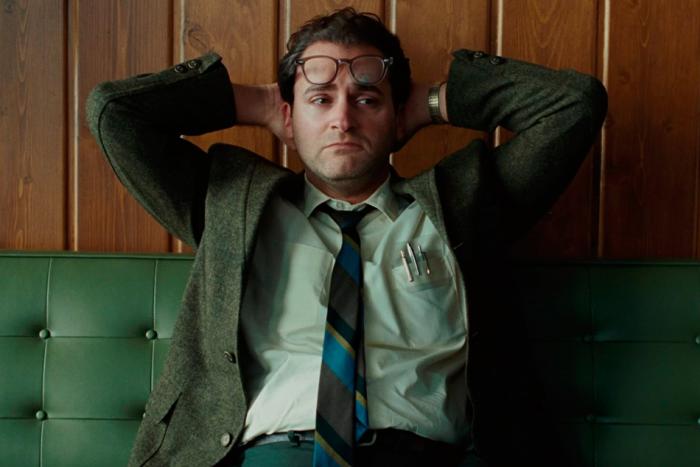“Farrah Fawcett had a rather strange opening night in Butterflies Are Free at the Burt Reynolds Dinner Theater in Jupiter, Florida, on 30 July 1980.” (from the website Life of an Actor)
It’s beautiful in Jupiter, Florida.
“Please try cantering down our Riverwalk,” I tell callers. “Bring plenty of film to the lighthouse!”
Anyone calling the Jupiter Tourist Info line is, invariably, creaky, old and dyspeptic: “Where’s Briny Baird’s place?” “How much for a blue plate special? I’ll bring my own food, thank you very much.”
I am pleasant with them, but how I loathe my job. And how often I fantasize—with the word WHEE! rising overhead in a mylar balloon—about bears chasing them by the river, then feasting on their soft, speckled bones.
But I’m not so young anymore myself.
In 1980, however, I was just 28, and working as a waitress at Burt Reynold’s dinner theatre, the Jupiter.
The playhouse has long been bankrupted, and Reynolds hasn’t set foot in the “miserable shithole”—as he once colorfully described it to a student reporter—in years.
But I remember the grandeur, the celebrity, the fine dinners of eggplant purée and boiled chicken so vividly, I can simply close my eyes and drift back.
My archrival, Donna Plouffe, and I were intent on appearing on that stage.
Since we were children—she and her mother lived in the condo next door, we had been acting out scenes from the masterpieces: The Pajama Game. Pins and Needles. Death of a Salesman. Inherit the Wind. Camelot.
I always had to play the man, and she, because she was smaller and more delicate, got my mother to apply her makeup and let her wear her best cocktail dresses, meticulously pinned down the back.
At school she called me “Biff” and held court, singing “Hey There” in the cafeteria, looking like a young, delightful, Doris Day.
We both joined the drama club in high school, but, again, I was relegated to scenery-painting while she got to dazzle as Sara Melody, Miss Madrigal, and Lola Delaney.
I admit that she had the curvy figure and sweetheart face that simply spelled STAR, but I had my own, more powerful, unusual beauty.
One year, she and the teacher had a terrible fight, and he chose me to play Sally Bowles in the year-end production of Cabaret.
“That will teach you to compare my balls to ‘enormous, chicken-fleshy, tear-drops,’” he said, as she stormed off with her large orbit of sympathetic friends.
I didn’t care how I got the part. I just cared about killing it.
I read the Isherwood stories, and examined the Fosse film; I read about Berlin, and the war, and painted my nails a deep, acid-green.
What happened?
When I made my first significant entrance at the Kit Kat Club, in fishnets, a bowler hat and the spangled shorts and tube top my mother had picked up for me at Thrift Villa, I raised my leg to the chair in the spotlight and someone let a mouse loose on the stage.
I shrieked and jumped on the chair that exploded into kindling as everyone threw peanuts and laughed like maniacs.
I saw Donna, as I lay on the floor, looking concerned. And as she clambered up to help me, I saw a jumbo bag of peanuts in her bag!
“You’ll pay for this!” I trumpeted.
I played nice after that, even after she leaped in and replaced me, then got scouted by the local college—news that made the Jupiter Daily.
I was making plans, even then.
She was home for the summer when she tried out for Mr. Reynolds, who was staging Butterflies Are Free.
“He thinks I have what it takes,” she said after I picked her up at his ranch house one morning.
“I’m still tweezing mustache hair off my bush,” she said, which was exactly the kind of disgusting comment I hated about her.
She got the part, as Miss Farrah Fawcett’s understudy, the same day.
The play is about some blind guy who plays guitar.
His mom is all up in his face and the sluttish girl next door teaches him about butterflies, that they are free to fly even if they crash into shit.
He plays the theme from “Chico and the Man” for her and they get married somewhere nasty because, who cares, he can’t see it.
And it starred the very beautiful Farrah Fawcett, who spent her nights drinking Chablis at the Town Pump and writing cruel graffiti about Ryan O’Neal in the bathroom.
Like, “For a bad time, call this punkass mick.”
Or, “If the bitch is out whoring, call Tatum.”
I remember her as an exquisite orchid.
And Donna, I remember differently.
When I get to work every morning, I make my coffee, replace the Splenda and non-dairy creamer in my purse, and pull up the Wikipedia entry about July the 30th.
Miss Fawcett is said to have had a “rather strange” debut: on opening night, “an obese woman” in the front row is reported to have yelled insults at the actress, made bird calls, and flashed the performers.
Dennis Christopher, who played the blind man, stared in astonishment as one man puked and another fainted.
Yet Fawcett received good notices.
And so did I, so did I.
Before the curtains rose, I slipped backstage with a tray of savory meats on crackers.
Everyone declined, except Donna, naturally, who, even in primary school, had to eat more paste than anyone else; nap longer and fall harder from the swings.
“Oh these are simply delicious!” she exclaimed, then turned a ghastly shade of grey.
She had recognized me under my Empire wig, heavy cosmetics, and uniform.
And she knew. She was eating her own, poisoned, flesh.
I worked part time in a lab then, and Donna had recently undergone a repugnant gynecological procedure, the tissue remains of which I had stolen, salted, and rolled in whole-wheat flour.
Swiftly, I removed my disguise and returned to my excellent seat.
My antics were a distraction.
Donna Plouffe aspirated on her own vomit, but no one heard a thing.
Miss Fawcett kept talking about “Groovy colours,” and I kept squawking.
And this bird flew.
There’s a beautiful line in the play that returns to me so often, and brings with it the dreams that once fluttered so close, and so beautifully.
The blind guy says it.
He goes “Mother, you have to laugh sometime, or people will think you’re a lesbian.”
LOL.






